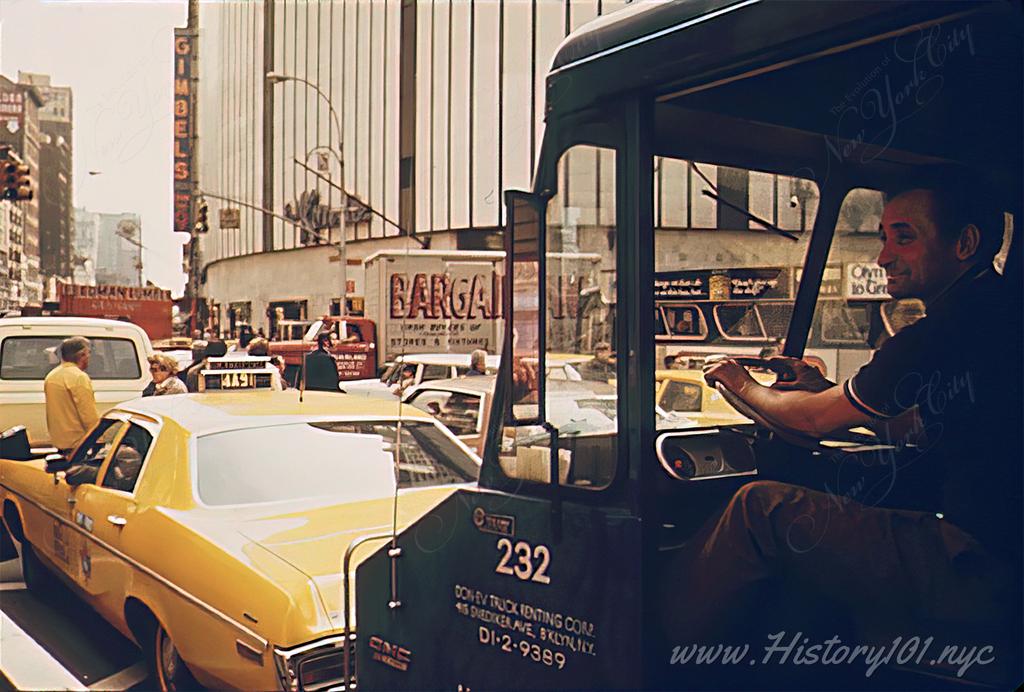
1970-1975 NYC: Financial Concerns, Cultural Renaissance, and Urban Activism
The history of New York City from 1970 to 1975 was deeply shaped by a profound fiscal crisis, alongside a remarkable cultural renaissance and a surge in urban activism. During these years, the city faced near-bankruptcy, which was emblematic of broader economic challenges in the U.S. The financial turmoil led to significant cuts in public services, affecting everything from sanitation to education, and increased tension among city residents and officials.
Despite these economic struggles, New York City remained a crucible of cultural innovation. This period witnessed the birth of new cultural movements that would leave a lasting impact on both the city and the world. The early 1970s saw the emergence of hip hop in the Bronx, an artistic revolution that began as a form of expression for marginalized communities and evolved into a global phenomenon. Additionally, the city’s art scene flourished with movements like graffiti and the rise of prominent artists such as Jean-Michel Basquiat, who began painting in the late 1970s.
Urban activism became increasingly prominent, with communities mobilizing to combat urban decay and governmental neglect. Notable was the growth of grassroots movements aiming to improve living conditions, fight for tenants’ rights, and preserve community cohesion against the backdrop of urban renewal projects and gentrification pressures. These movements often intersected with burgeoning environmental awareness, leading to protests against pollution and the degradation of urban spaces.
Culturally, the city continued to be a hub for the performing arts, with Broadway experiencing a resurgence and off-Broadway productions gaining prominence. The vibrancy of the city’s theater scene provided a stark contrast to the gritty realities of urban life, offering both escapism and critical reflections on contemporary issues.
By 1975, New York City had navigated through one of its most challenging periods, emerging with a renewed sense of identity and purpose. The cultural and social movements born during this time would continue to influence the city’s evolution, underscoring its resilience and capacity for reinvention.
1970-1975 Timeline of New York City’s History, USA
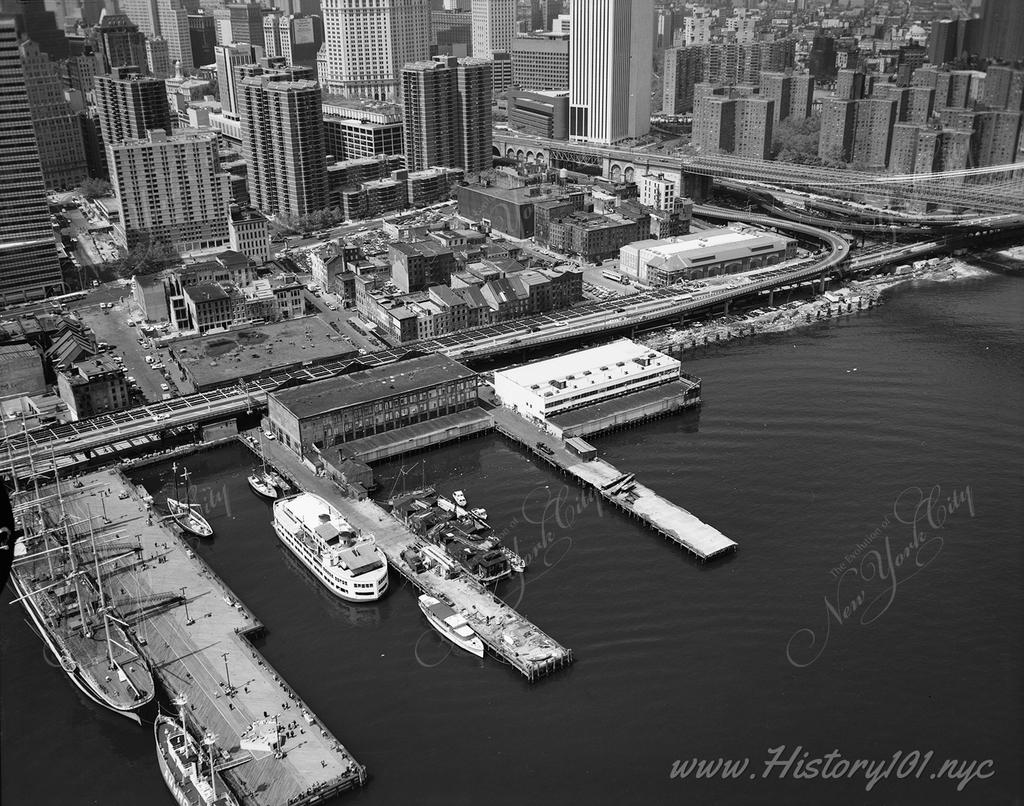
1974: South Street Seaport from Above
Aerial view of the East River showing Piers 17 and 18, South Street Seaport at Fulton Street.
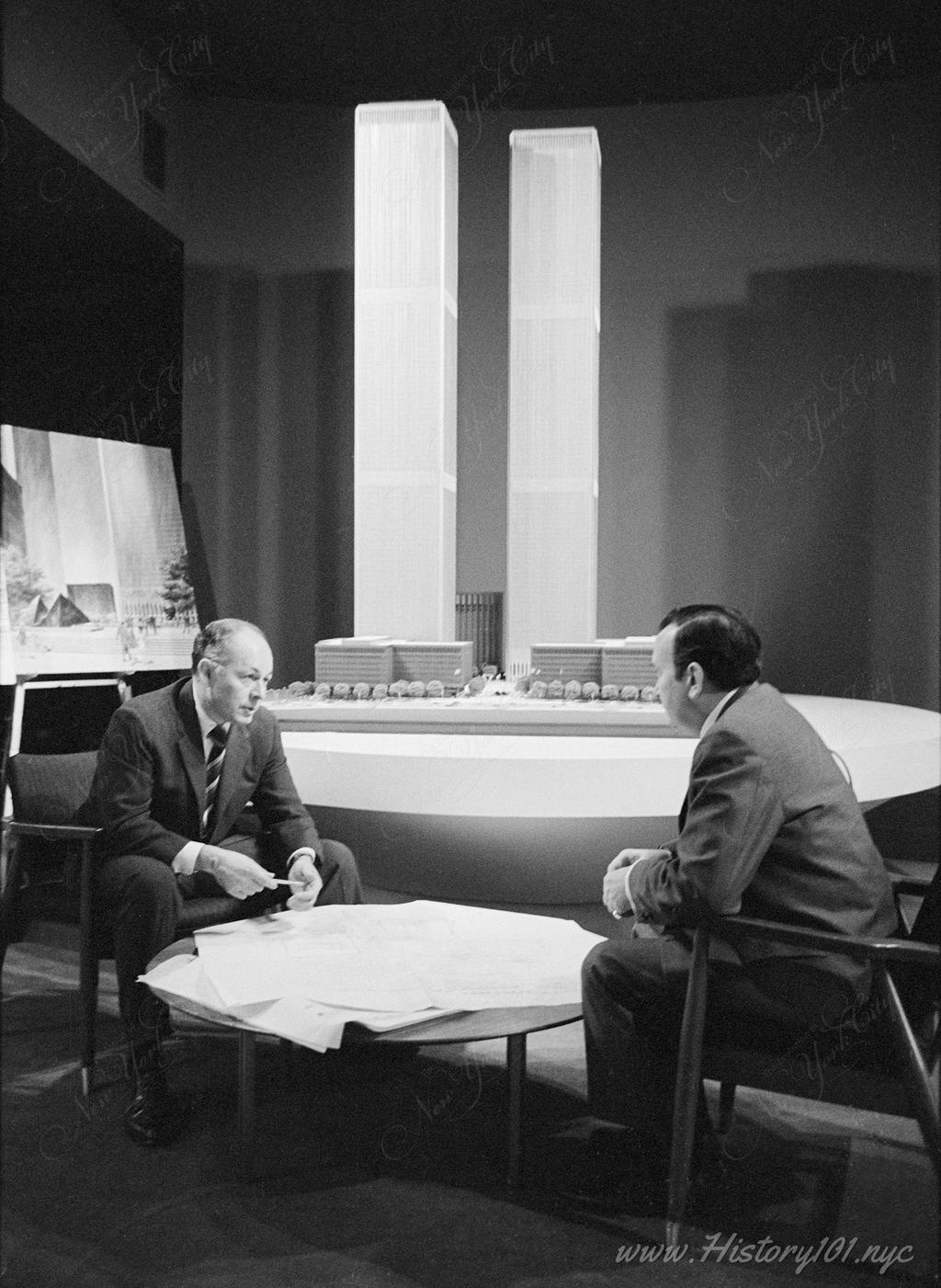
1971: World Trade Center Scale Model at Port Authortiy
Officials of New York's Port Authority discussing office space with a scale model of New World Trade Center in background.
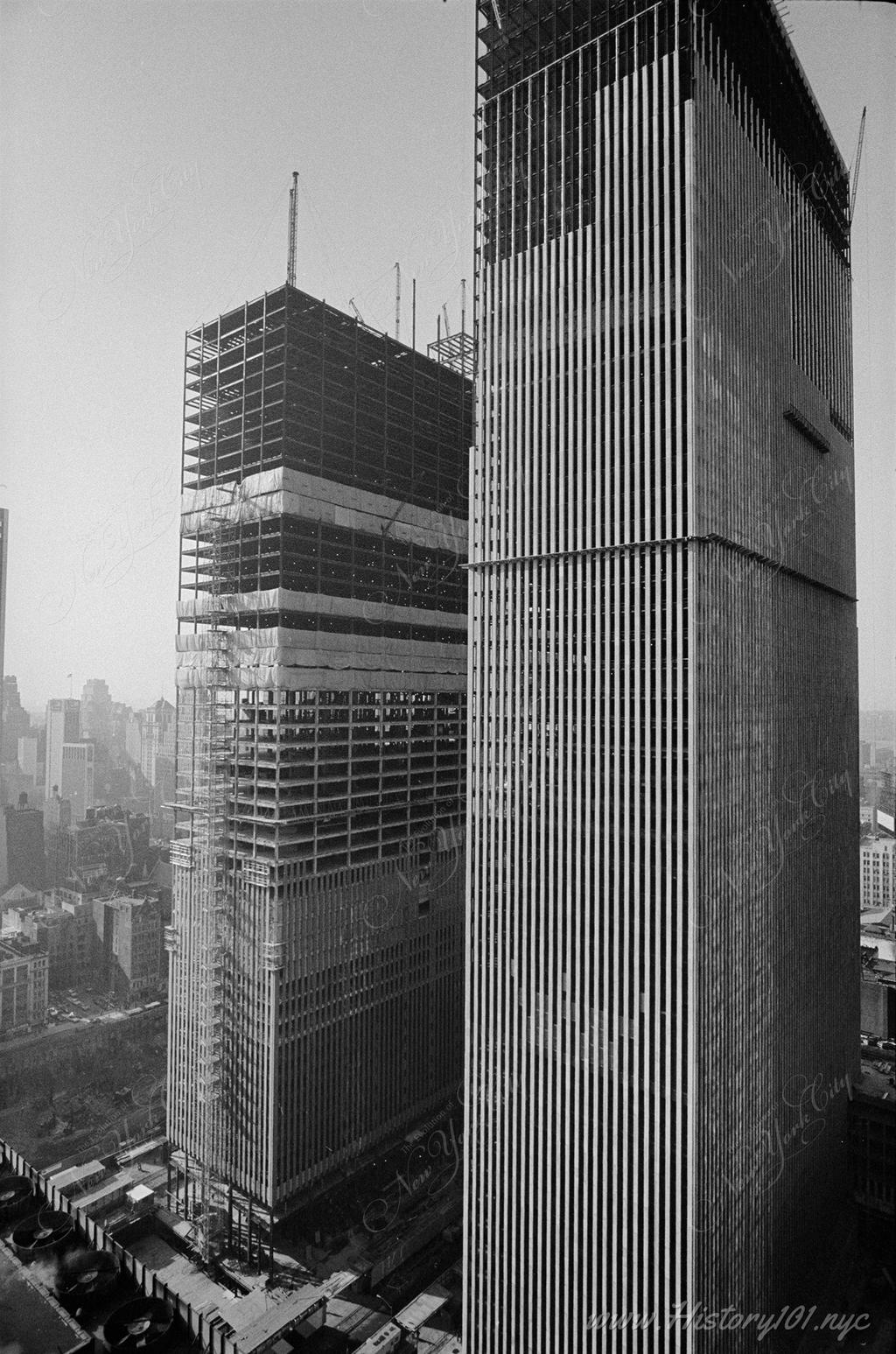
1971: McGraw Hill Building Construction
1251 Avenue of the Americas, formerly known as the Exxon Building, is a skyscraper on Sixth Avenue (also known as Avenue of the Americas), between 49th and 50th Streets, in Manhattan.
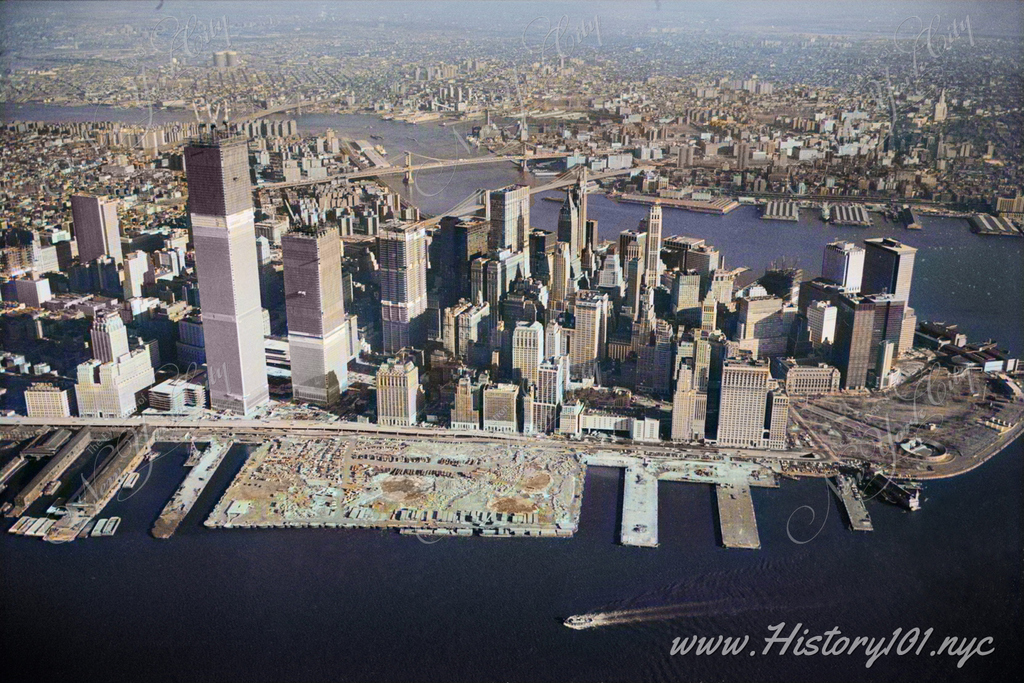
1971: Aerial View of Manhattan's Evolution: From WTC Foundations to Battery Park City
Discover how Battery Park City in NYC emerged from the World Trade Center's excavation, symbolizing urban transformation and planning
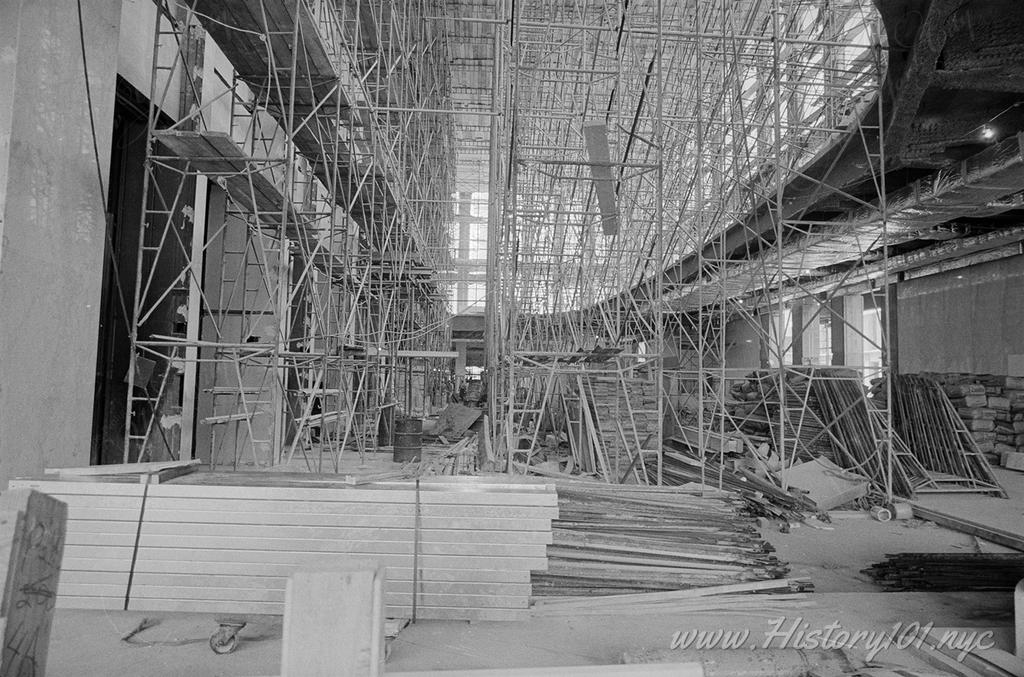
1971: Building the World Trade Center Lobby
Photograph of the interior of the World Trade Center Lobby under construction.
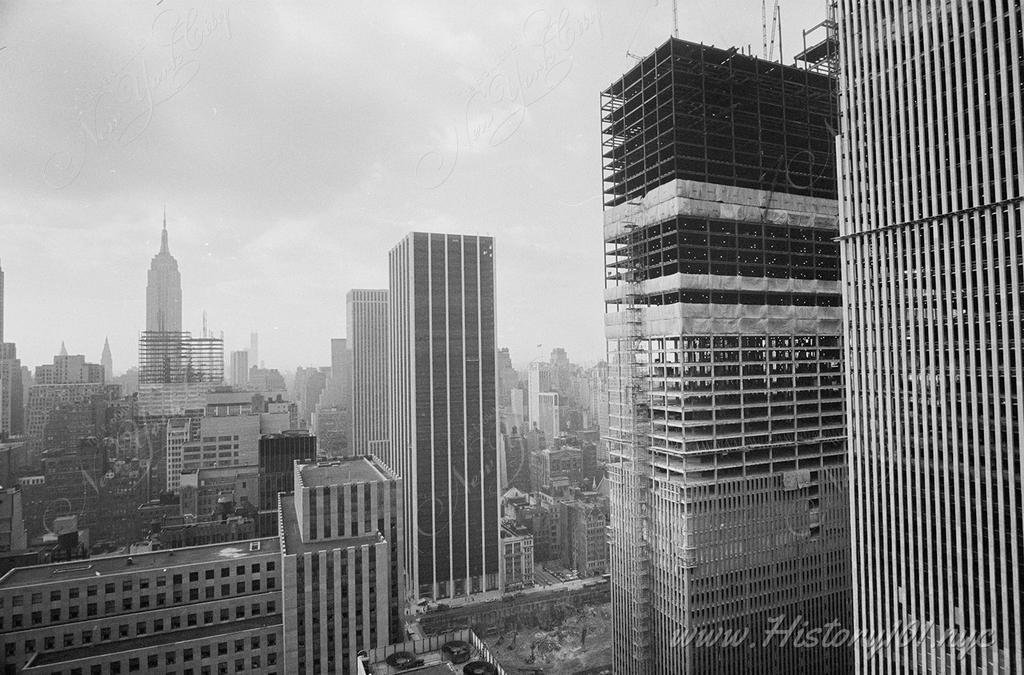
1971: McGraw Hill Building Construction, Looking North
Elevated perspective of the McGraw Hill Building construction. The Empire State Building and midtown skyline are visible in the distance.
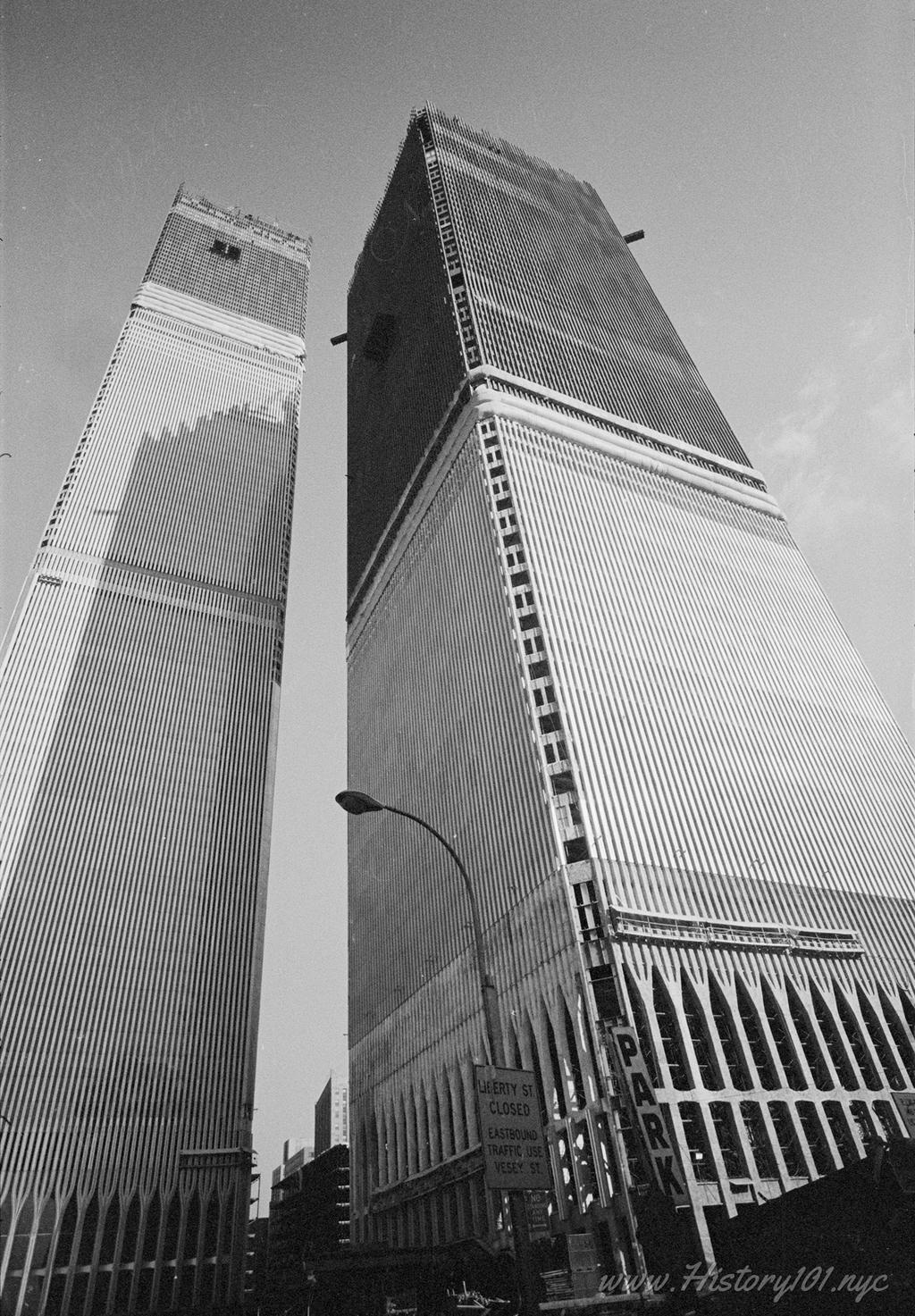
1971: Capturing History: Gazing Up at New York's Twin Towers Under Construction
Explore the striking 1971 photograph of NYC's World Trade Center Twin Towers by Thomas J. O'Halloran
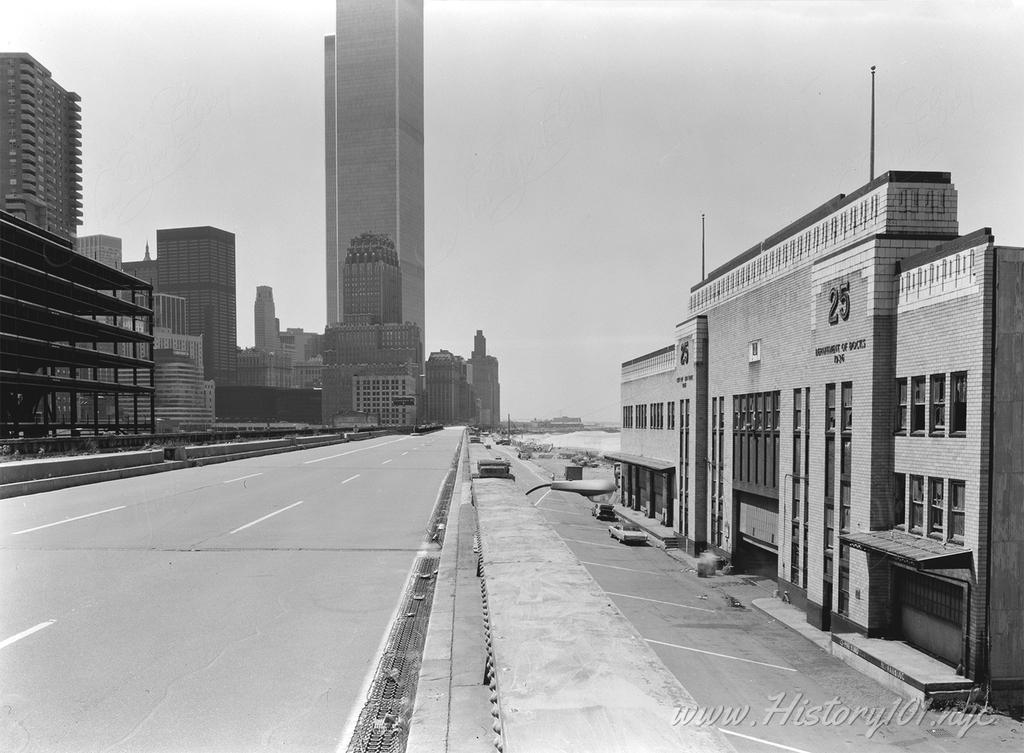
1973: West Side Highway
Photograph looking south on Westside Highway at Pier 25, with the World Trade Center visible in the distance.
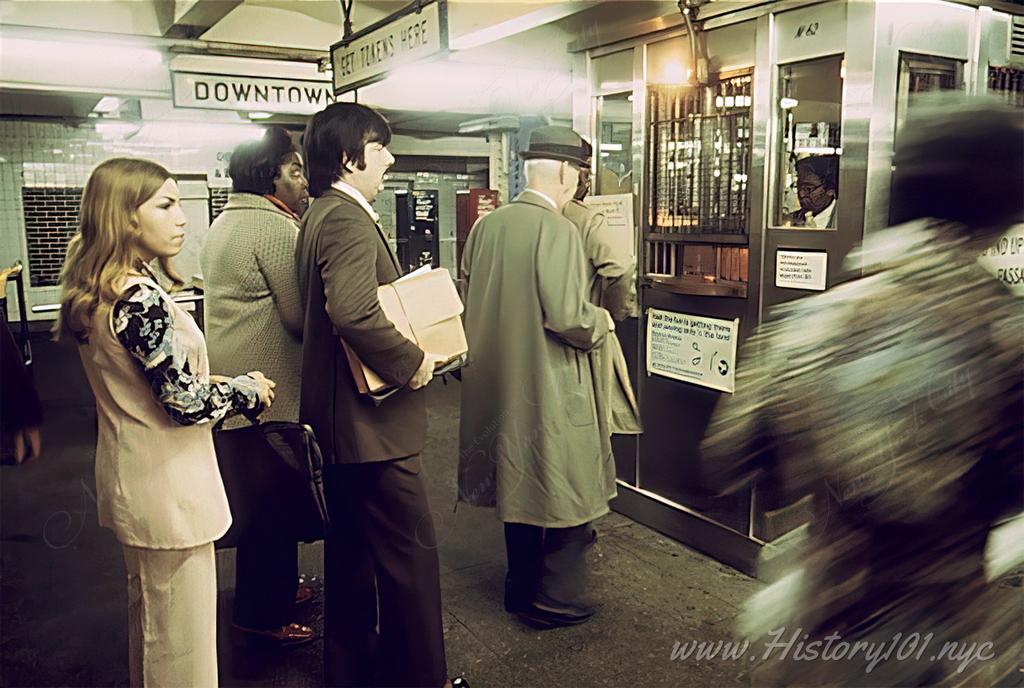
1974: New York City Subway Token Booth: A Glimpse into the Past
Discover a 1974 snapshot capturing New York City's subway token booth, reflecting the daily rhythm of 1970s urban life and the spirit of New Yorkers
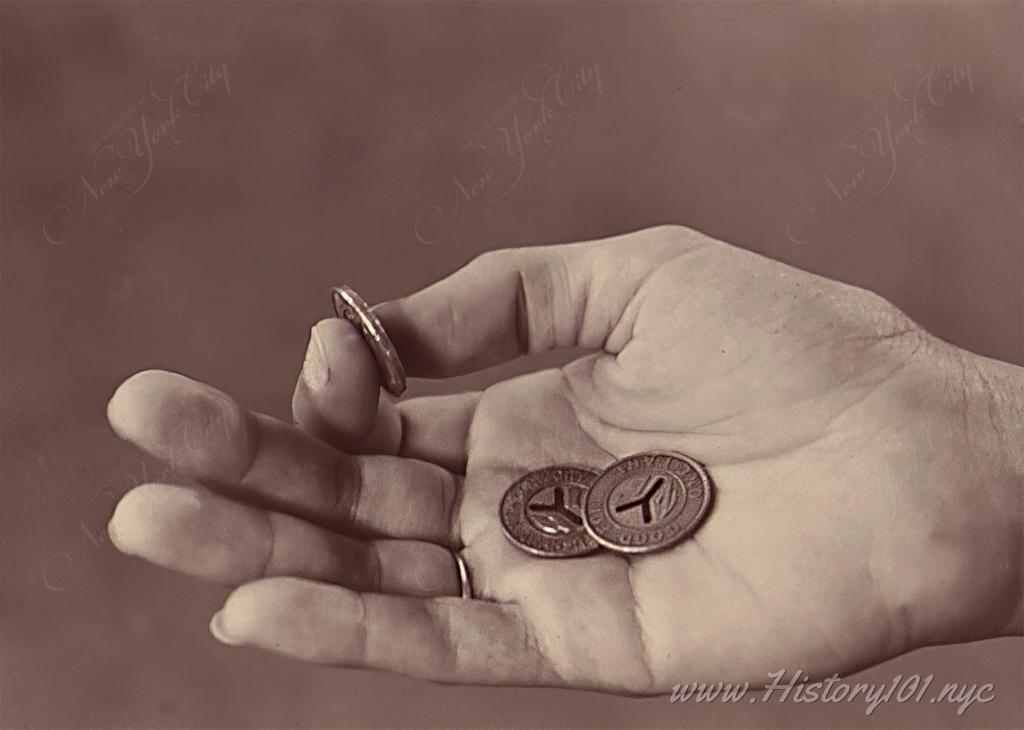
1974: Subway Tokens
The first subway token change occurred in 1970 when the fare was raised to 30 cents and 50 million tokens were minted.
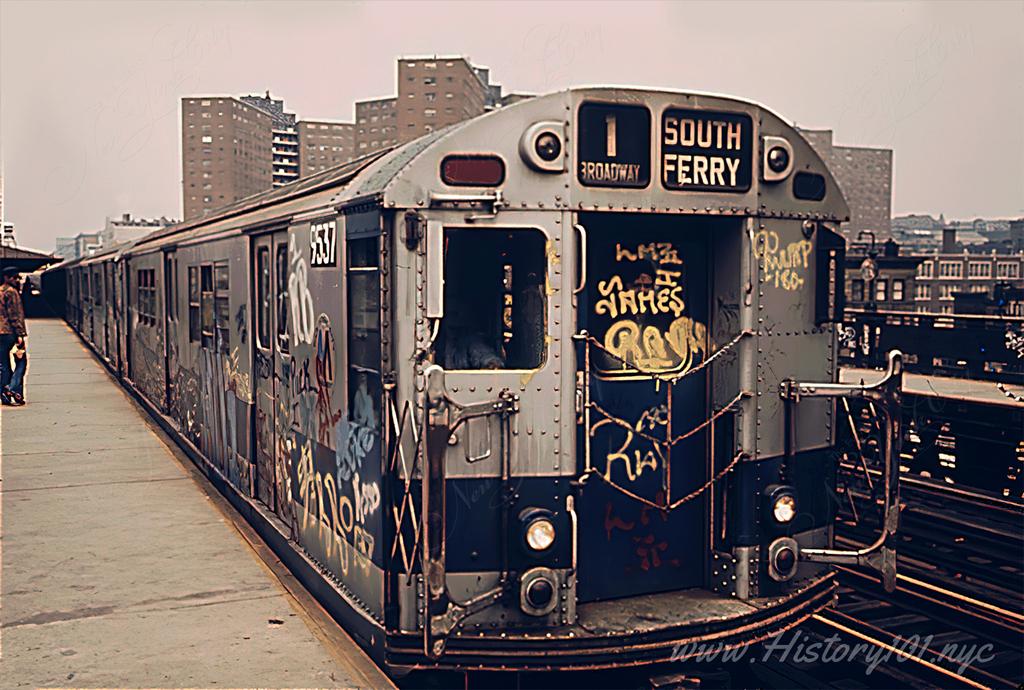
1973: Graffiti-Covered 1 Train at 125th Street: NYC Transit's Artistic Transformation
Explore a 1973 photo capturing the graffiti-covered 1 Train at NYC's 125th Street Station, symbolizing a moment in the city's street art movement
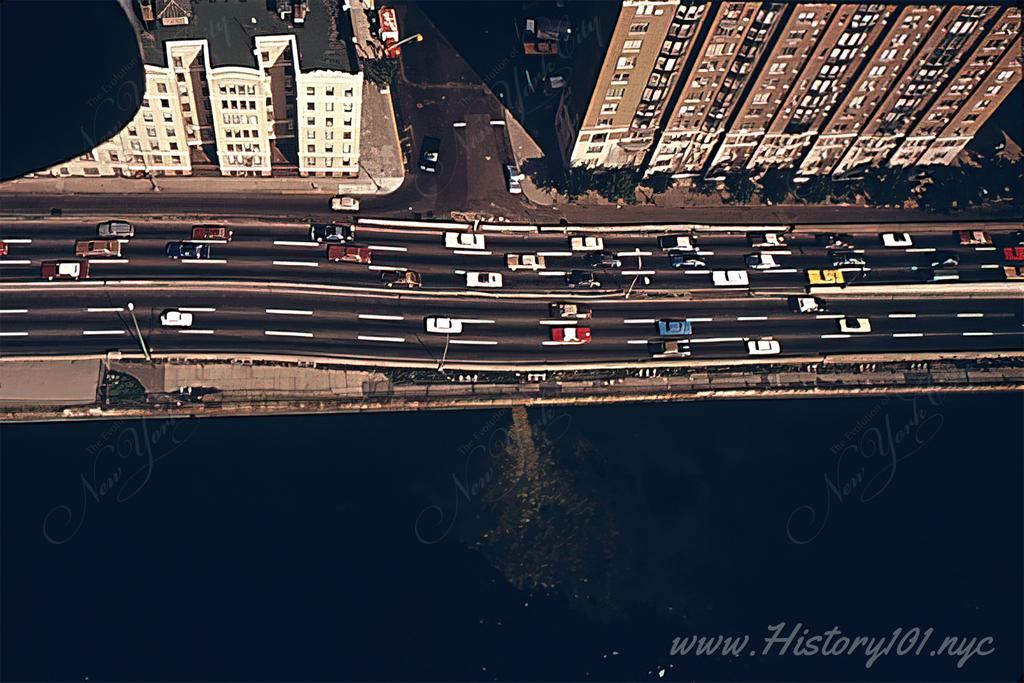
1974: City Sewage Flowing into East River
Aerial photograph of untreated sewage spilling into the East River along 79th Street and The FDR Drive.
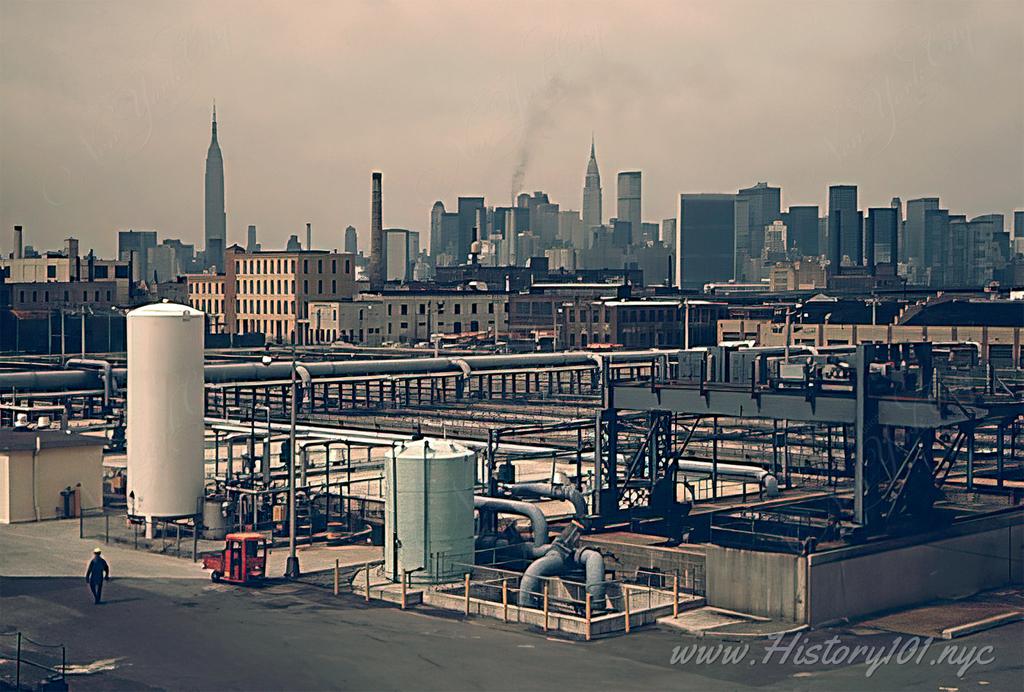
1974: Newtown Creek Sewage Treatment Plant
Photograph of the Newtown Creek Sewage Treatment Plant in Brooklyn, which began operation in 1967 and currently treats 18% of the City's wastewater.
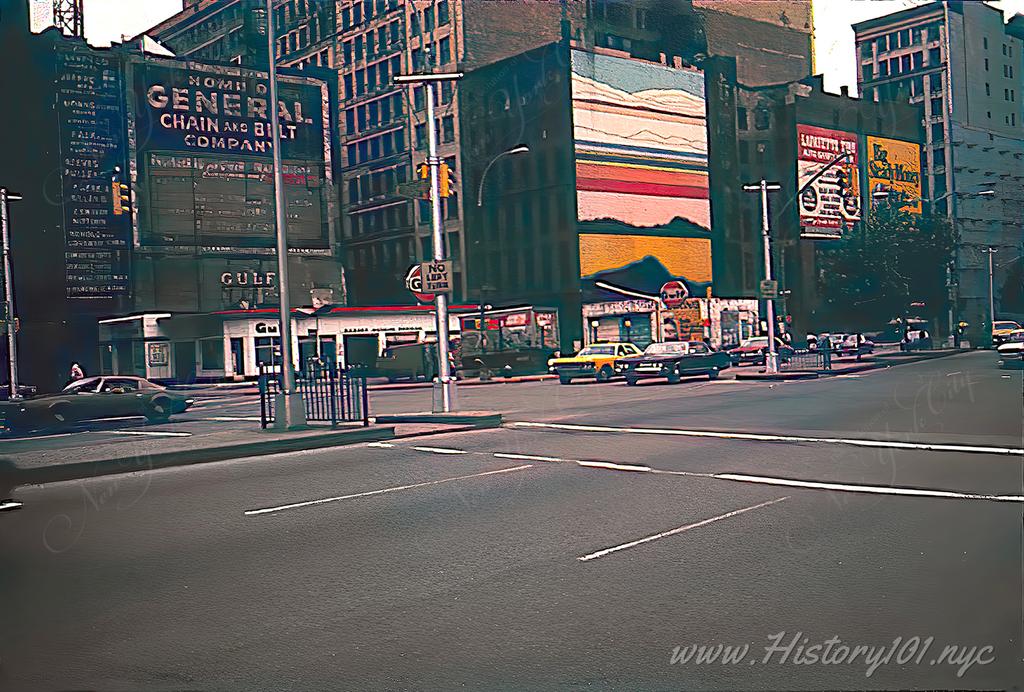
1974: Houston Street & Lafayette: Vibrant Wall Paintings & Building Advertisements
Explore the vibrant wall paintings of Houston Street, NYC in 1974, a symbol of the era's style and a cornerstone for films, rich artistic heritage
